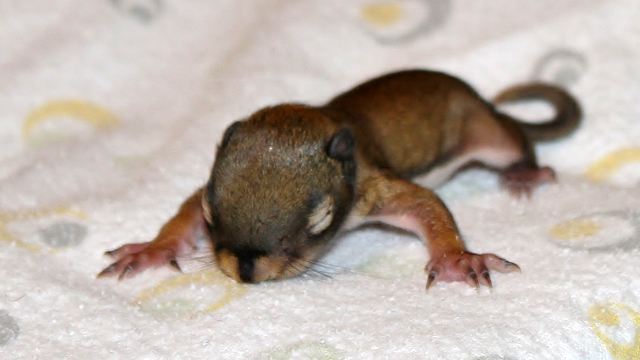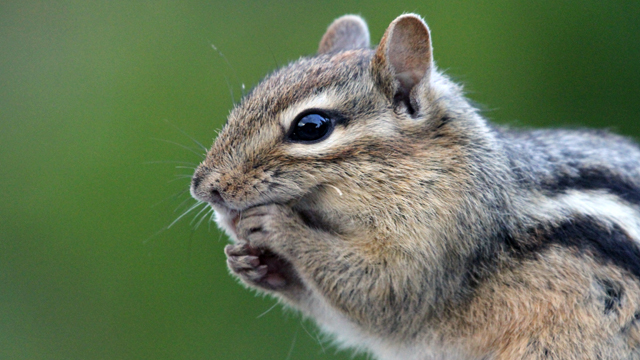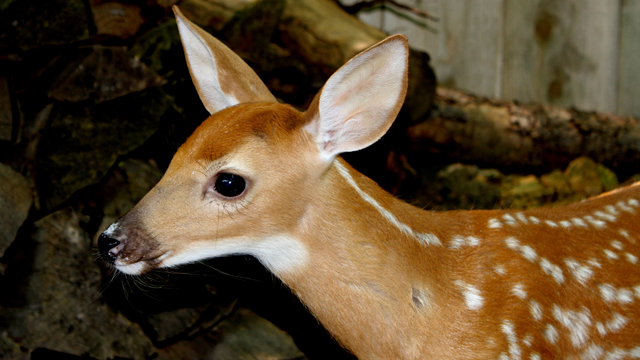What to do if you find an animal
Coming across a baby animal that appears to need help usually brings out the best instincts in all of us. But it’s important to know that taking the wrong action can cause the baby’s death.
Q: How can I determine whether or not this baby is truly orphaned?
A: If you are seeing the animal consistently out on its own, with no signs of a mother, this is a good indication that it is orphaned and looking to you for help – especially if it is following you around. Animal mothers are very dedicated and will not allow babies to wander far from the den or nest. But some animals take a different approach to keep their babies safe from harm. If you come across a nest of baby rabbits when doing lawn work but don’t see an adult rabbit around, they may be just fine. A mother rabbit stays away from her nest of babies to avoid drawing attention to them. If she fails at this and attracts a predator to the nest, she and the babies will be defenseless. The mother may only come in the early morning or late at night to feed them. Deer take a similar approach. A doe will leave her baby stashed in long grass and stay away most of the time only returning to feed or move on together. So in the case of deer and rabbits it’s best to leave them alone, unless the animal is moving around and making vocalizations or you see a dead adult in the immediate vicinity. If the baby has an obvious injury it will likely require help, so take a close look.
Q: Can I feed the animal?
A: No. Feeding the animal can cause its death. When very young, their systems are extremely sensitive and can’t handle the foods most of us would have on hand - cow’s milk, human baby formula, or recipes suggested by well intentioned but inexperienced friends. Any of these can seriously harm or kill the baby. Besides this risk, feeding a baby animal any liquid, including water, without the proper gauge feeding syringe or knowing the animal’s internal body temperature can cause it to aspirate, meaning it now has fluid in its lungs and will likely die.
Q: What can I do?
A: The best way to help this baby is to bring it inside and keep it warm. If you have a pet carrier you can keep it in that. But a box can work just as well. Put some towels or flannels in with it. If you have a hot water bottle, fill it with hot water and wrap it up really well in a towel and place the baby on top of it and then cover it over with another little blanket. You won’t smother it, but the warmth is a must - just be sure the hot water bottle is wrapped so it doesn’t burn. Don’t leave the hot water bottle in overnight, as it will get cold becoming more of a liability than an asset. If you can manage to reheat the bottle during the night, then do so. If you have a heating pad, you can use this at its lowest setting but only place it under half the box so the baby can move if it gets too warm. Otherwise, keep the animal inside in a warm, draft free and safe location away from pets with lots of towels to burrow in.
Q: Finding Help?
A: If you’re reading this, you’ve already found us. Call. If we can’t help, we’ll direct you to someone who can. You can also try www.ontariowildliferescue.ca which has a listing of authorized rehabilitators.
INTERNET SITES: There is some good information on the Internet, but some sites give advice that will the kill animals you are trying to help. One point to remember is to ask questions before you turn animals over to any caregiver: How will the animal be cared for? Will the animal be put down? What is its future? Be sure you are comfortable with the answers.





